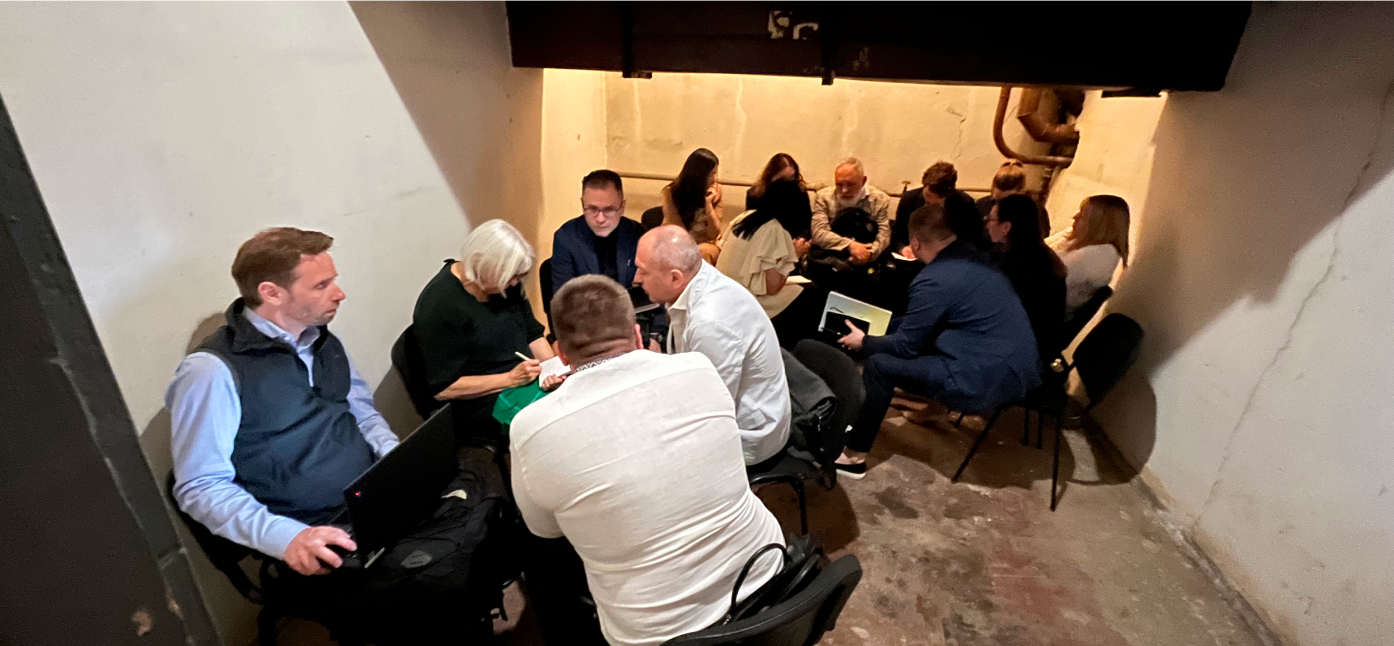Following the assessment, UNDP provided further support to the
Commission to develop its
five-year strategy
that would serve as a roadmap to effectively address the
challenges arising from the conflict, underscoring the
Commission’s and the Government's commitment to safeguard and
promote human rights. In 2024, UNDP, together with TPP partners,
will continue to assist the Commission in implementing key
outcomes of the assessment and operationalize the five-year
strategy
Lessons learned
NHRIs play an integral part in supporting achievement of the 2030
Agenda. The presence of a functioning NHRI that complies with
the Paris Principles
is an indicator of progress in the global SDG framework. In 2015,
70 countries had NHRIs that complied with the Paris Principles –
or approximately 35 percent of Member States. In 2023,
88 countries benefitted from an independent NHRI
– or 45 percent. Whilst this represents important progress, more
Member States need to take action to establish Paris
Principles-compliant NHRIs, and further coordinated support is
required to assist with the establishment of these institutions.
Within crisis contexts, NHRIs carry out vital roles by monitoring
human rights violations, hate speech and mis/disinformation;
collecting and analysing data through early warning systems to
identify structural violence risks; preventing rights abuses and
improving physical integrity rights through awareness, education,
and reporting; and providing mechanisms for redress. NHRIs also
foster better linkages between States and civil society,
increasing accountability and contributing to national dialogue
Looking forward
Amidst continued shrinking civic space and push back on human
rights globally, UNDP is committed to continuing to provide
critical support to NHRIs as cornerstones of national human rights
systems particularly in crisis and fragile settings. The
importance of their unique voice and daily actions to increase the
fulfillment of human rights for all people cannot be underscored
enough.
In 2024, UNDP will continue to provide coordinated support to
NHRIs to:
-
Support more governments establish and strengthen NHRIs that are
compliant with the Paris Principles.
-
Strengthen the capacities of NHRIs supported through in-country
assistance, including the capacities of 13 NHRIs across all
regions through the TPP.
-
Develop practical tools for NHRIs on how to (1) assess their
digital readiness and (2) operationalize
the right to a healthy environment.
-
Support the voice of NHRIs in key policy fora on human rights,
crisis and development.
Digital technology has transformational potential for delivering
development and supporting the SDGs. Human rights are the
guardrails needed to ensure digital transformation benefits whole
societies. Without a clearly defined framework designed to
safeguard human rights in the digital realm, digital
transformation is inherent with risk. Specifically, technological
transformation can present new challenges to human rights related
to privacy, data protection, freedom of expression and
association.
Knowledge and thought leadership
In response to the evolving landscape of digitally enabled
development and its impact on human rights, in 2023 UNDP bolstered
its efforts to foster a rights-based approach to digital
transformation which is a key guiding principle of
UNDP’s Digital Strategy.
To provide actionable insights into the state of human rights in
the digital space, UNDP started developing a Digital Rights
Dashboard (DRD) integrated within UNDP’s
Digital Development Compass,
which will serve as a framework to include the protection of
fundamental human rights in the navigation of digital
transformation in 193 countries. The DRD will offer insights into
the state of human rights in the digital space, fostering a deeper
understanding and identifying global trends. Additionally, to
increase awareness of human-rights based digital transformation
within UNDP and to ensure its proactive and impactful engagement
on human-rights based digital transformation, UNDP worked on
integrating human rights
into its Inclusive Digital Transformation Framework.
Lessons learned
The design phase of the DRD showed that there was little consensus
on considering how fundamental rights should be understood in the
digital context. All human rights apply online and offline.
Currently there are limited ways to understand how rights are
respected in the digital realm in different countries.Therefore,
UNDP has organized consultations with experts within the field of
digital rights to gather insights and knowledge to inform and
review the development of the DRD and to provide a methodology to
follow through how limited available data can provide a nuanced
picture of opportunities to promote human rights based digital
transformation in countries.
Looking forward
In 2024,
-
UNDP will pilot the DRD in five countries and subsequently
launch it as an integral part of UNDP’s Digital Development
Compass (DDC).
-
The methodology developed for the DRD case studies will
demonstrate how the findings from the DDC and DRD can be
utilized to construct a more holistic and nuanced understanding
of the state of digital rights in a country. This will provide
opportunities for more comprehensive support to national
stakeholders in advancing digital transformation efforts.
-
Rights-based digital transformation initiatives will employ a
gender-responsive approach in data collection, analysis, and
policy recommendations, contingent on the availability of
relevant data.
-
Thought leadership and corporate tools will be developed to
navigate the intersection of technology and human rights,
enhancing support to UNDP country programming and fostering
collaboration and partnerships.
EXPANDING UNDP’s HUMAN RIGHTS TOOLKIT AS “PROBLEM-SOLVER OF
CONTEMPORARY DEVELOPMENT CHALLENGES




